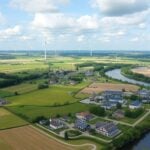Navigating the world of grants can be a daunting task, especially for those new to the process. The first step in crafting a successful grant proposal is to thoroughly understand the specific requirements set forth by the funding organization. Each grant has its own set of guidelines, eligibility criteria, and objectives that must be adhered to.
This means that applicants must carefully read and interpret the request for proposals (RFP) or guidelines provided by the funding body. Pay close attention to details such as the funding amount available, deadlines, and any specific formats or templates that must be used. Moreover, understanding the mission and priorities of the funding organization is crucial.
This knowledge allows applicants to tailor their proposals to align with the funder’s goals. For instance, if a grant is aimed at promoting environmental sustainability, a proposal that emphasizes innovative green technologies or community-based conservation efforts will likely resonate more with reviewers. By aligning your project with the funder’s mission, you increase your chances of securing funding and demonstrating that your project is not only viable but also valuable to the community and the funder’s objectives.
Collecting relevant data
Once you have a firm grasp of the grant requirements, the next step is to gather relevant data that supports your proposal. This data can come from various sources, including academic research, government reports, and case studies. It is essential to collect both qualitative and quantitative data to provide a comprehensive view of your project’s context and potential impact.
For example, if you are proposing a program aimed at improving literacy rates among children in underserved communities, you might gather statistics on current literacy rates, demographic information about the target population, and testimonials from educators or parents. In addition to existing data, consider conducting your own surveys or interviews to gather firsthand information. This primary data can add depth to your proposal and demonstrate a clear understanding of the needs of your target population.
Engaging with community members or stakeholders not only enriches your data but also fosters relationships that can be beneficial for project implementation. Remember, the more relevant and robust your data is, the stronger your proposal will be in convincing funders of the necessity and feasibility of your project.
Analyzing and interpreting the data
After collecting relevant data, the next critical step is analyzing and interpreting it effectively. This process involves examining the data to identify trends, patterns, and insights that can inform your project’s objectives and strategies. For instance, if your data reveals a significant gap in literacy rates among different demographic groups, you can use this information to tailor your program to address those disparities specifically.
It’s important to not only present the data but also explain its significance in relation to your project goals. When interpreting data, consider using statistical tools or software that can help you visualize trends and correlations more clearly. This analysis should lead you to draw conclusions that support your project’s rationale and demonstrate its potential impact.
For example, if your analysis shows that children who participate in after-school literacy programs perform better academically than those who do not, this evidence can be a powerful argument for funding your initiative. By clearly articulating how your analysis informs your project design, you enhance the credibility of your proposal.
Incorporating data into the grant narrative
Integrating data into your grant narrative is essential for creating a compelling case for funding. The narrative should weave together your project’s goals, methodology, and expected outcomes while seamlessly incorporating relevant data points. This means that rather than presenting data as isolated facts or figures, you should contextualize it within the story of your project.
For example, when discussing the need for your program, you might state that “current literacy rates in our target community are 30% lower than the national average,” followed by an explanation of how your program aims to address this gap. Additionally, ensure that each piece of data you include serves a purpose in supporting your overall argument. Avoid overwhelming readers with excessive statistics; instead, choose key data points that are most relevant to your objectives.
Use these data points strategically throughout your narrative to reinforce your claims and illustrate the urgency of your project. By effectively incorporating data into your narrative, you create a persuasive argument that resonates with reviewers and highlights the importance of funding your initiative.
Using visuals to support the data
Visual aids can significantly enhance the presentation of data in a grant proposal. Charts, graphs, infographics, and tables can help distill complex information into easily digestible formats that capture attention and convey key messages quickly. For instance, a bar graph illustrating literacy rate improvements over time can provide a clear visual representation of progress made by similar programs, making it easier for reviewers to grasp the potential impact of your proposed initiative.
When creating visuals, ensure they are clear, professional, and directly related to the content of your proposal. Each visual should have a purpose and be accompanied by concise explanations or captions that clarify what the viewer is seeing. Additionally, consider using color coding or other design elements to highlight important trends or comparisons within the data.
By thoughtfully incorporating visuals into your proposal, you not only enhance its aesthetic appeal but also improve its overall effectiveness in communicating critical information.
Ensuring accuracy and reliability of the data
The integrity of your grant proposal hinges on the accuracy and reliability of the data you present. Funders are likely to scrutinize any claims made in your proposal; therefore, it is essential to ensure that all data is sourced from reputable organizations or peer-reviewed studies. When citing statistics or research findings, provide proper references so reviewers can verify the information if they choose to do so.
Moreover, consider conducting a thorough review of all data before submission to catch any errors or inconsistencies. This includes double-checking calculations, ensuring that all figures are up-to-date, and confirming that any qualitative data accurately reflects participant experiences or opinions. By prioritizing accuracy and reliability in your proposal, you build trust with funders and demonstrate professionalism in your approach.
Highlighting the impact of the data on the project
A successful grant proposal not only presents data but also emphasizes its impact on the proposed project. It is crucial to articulate how the data informs project design and implementation while also illustrating its potential outcomes. For example, if your research indicates that early intervention programs significantly improve literacy rates among at-risk children, you should clearly outline how this evidence shapes your program’s structure and goals.
Additionally, consider discussing how you will measure success based on the data presented. Funders appreciate knowing how their investment will lead to tangible results; therefore, outlining specific metrics or evaluation methods can strengthen your proposal further. By highlighting the impact of data on both project design and expected outcomes, you create a compelling narrative that showcases not only why funding is needed but also how it will lead to meaningful change.
Seeking feedback and revisions on the data presentation
Before finalizing your grant proposal, it is essential to seek feedback from colleagues or mentors who can provide an objective perspective on your data presentation. Fresh eyes can catch errors you may have overlooked or suggest improvements that enhance clarity and impact. Consider sharing drafts with individuals who have experience in grant writing or those familiar with the funding organization’s priorities; their insights can be invaluable in refining your proposal.
Incorporating feedback may involve revising sections of your narrative or adjusting how you present data visually. Be open to constructive criticism and willing to make changes that strengthen your proposal overall. Additionally, consider conducting mock reviews where peers evaluate your proposal as if they were funders; this exercise can help identify areas for improvement before submission.
By actively seeking feedback and making necessary revisions, you increase the likelihood of submitting a polished and persuasive grant proposal that stands out among competitors. In conclusion, successfully navigating the grant application process requires careful attention to detail at every stage—from understanding requirements to presenting compelling data narratives. By following these actionable tips and strategies, applicants can enhance their chances of securing funding for their projects while making a meaningful impact in their communities.


























